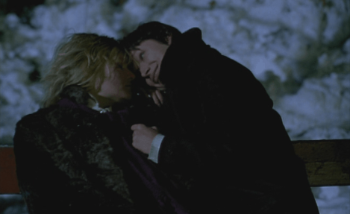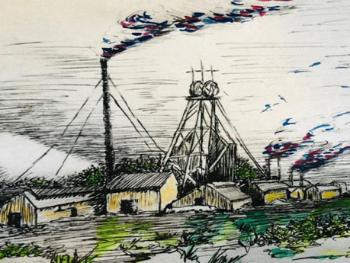PLEASE SCROLL DOWN TO SEE OUR UPCOMING EVENTS
25-26 July 2024 | Can CEE Lesbians Speak? Towards Central and Eastern European Lesbian Studies and Network
Date: Thursday, 25th July & Friday, 26th July 2024 
Time: DAY 1 & 2: 9.30am-5pm
Venue: Humanities Institute, H204
The purpose of the symposium is to think broadly and collectively about lesbians and lesbian studies in Central and Eastern Europe, particularly in the context of art, literature, history, community, affect, sex, post- and decoloniality, and East/West connections and their inherent problems. While there is, of course, lesbian scholarship in existence across the region, it seems we have rarely spoken collectively, in dialogic form, or transnationally. In short, “lesbian studies” as a discipline has not yet been outlined or conceptualised in the region, unlike the more established investigations of gay masculinities and queerness.
This event is a methodologies-oriented workshop, discussing the current state of the field, different approaches to the subject, and opportunities and concerns of working with the knowledge we have thus far, as well as the obvious archival absences and gaps. I hope this symposium will serve us to look for connections, common methodologies and theorisations, and consider collective approaches to “lesbian” in the region and their challenges and shortcomings.
Event organiser: Dr Aleksandra Gajowy (UCD School of Art History & Cultural Policy, and HI member)
This symposium is generously supported by the National University of Ireland Early Career Research Grant, the UCD Humanities Institute Research Grant, the UCD Research Seed Fund Award, and the UCD EDI Committee Grant. Special thanks for support to Professor Kathleen James-Chakraborty and Dr Sean Leatherbury, UCD School of Art History and Cultural Policy.
5 September 2024 | Dr Clara Dawson | University of Manchester | 'Avian Poetics: Birds in Natural History and Poetry in the Nineteenth Century'
Date: Thursday, 5th September 2024 
Time: 3.30-5.30pm
Venue: Humanities Institute, H204
Abstract: The paper proposes the idea of a shadow migration in the global bird trade that escalated during the nineteenth century. Examining natural history texts alongside nineteenth-century poetry, the paper excavates correlations between poetry and natural history in their relations with birds. It argues that natural history contributed to the popular public consumption of birds as objects without agency, dissecting their bodies and presenting them as fixed and available for the human gaze, shifting from a more Romantic mode of experiencing birds as fleeting glimpses of colour or sound in the wild.
See 'Extractivist Landscapes' for further details about the project, or contact:
(opens in a new window)Megan Kuster and (opens in a new window)Sarah Comyn